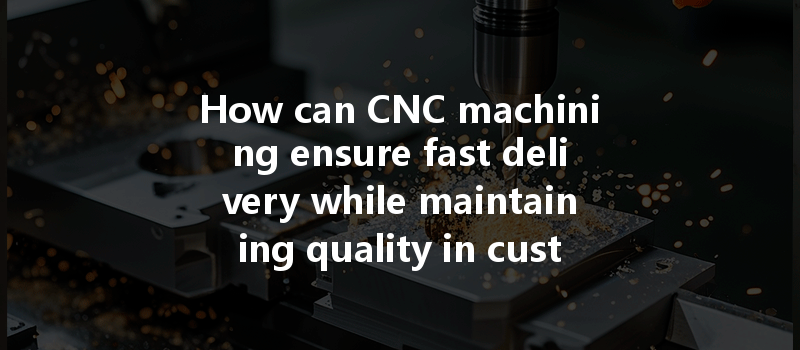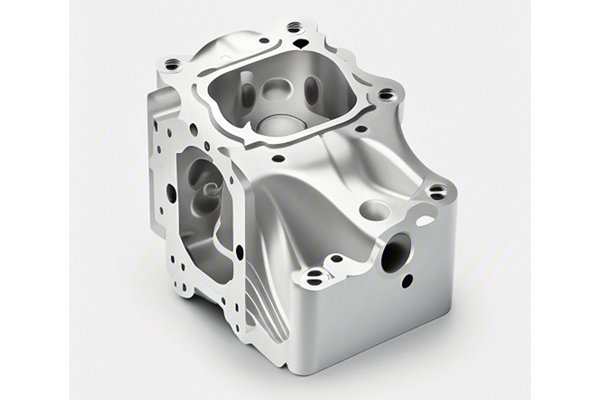Did you know that the global CNC machining market is expected to reach $100 billion by 2027? This explosive growth highlights the importance of CNC machining in various industries, from automotive to aerospace, and even medical devices. With such a vast market comes a pressing question: How can CNC machining companies deliver high-quality custom parts quickly to meet customer demands? The balance between speed and quality is not just important; it is crucial for customer satisfaction and long-term success in the competitive landscape of CNC machining.
In this blog, we will explore solutions that CNC machining companies implement to ensure swift deliveries without sacrificing quality, revealing key technologies and strategies that inform their process.
Understanding the Challenge: Speed vs. Quality
The CNC machining industry faces the inherent conflict of delivering parts rapidly while maintaining a high level of precision and quality. Customers often have tight deadlines, and the demand for customized solutions requires adaptable manufacturing processes. However, accelerate production times can sometimes lead to a decline in the quality of the final product, resulting in increased scrap rates, rework, or even customer dissatisfaction. To combat these challenges, CNC machining companies must refine their methodologies and employ cutting-edge technologies that support efficient production without compromising on quality.
The Key Factors Influencing Speed and Quality
Before delving into the solutions, it’s essential to recognize the core factors that influence both speed and quality in CNC machining:
Solutions for Achieving Fast Delivery without Compromising Quality
The adoption of advanced CNC machines, such as five-axis CNC machining, allows manufacturers to create complex geometries in fewer setups. As opposed to traditional three-axis machines, five-axis machines can access the workpiece from multiple angles, leading to faster production times and less manual intervention. This not only speeds up the overall manufacturing process but also enhances accuracy, ensuring that high-quality parts are produced with less risk of human error.
Implementing IoT (Internet of Things) technology in CNC machining provides real-time monitoring capabilities. This means that machine operators can track parameters like temperature, vibration, and voltage to detect potential issues before they evolve into serious problems. Preventive maintenance can then be scheduled to avoid unexpected downtimes while ensuring that machines run at optimal levels, thus supporting both speed and quality.

Automated workflow systems can streamline many aspects of CNC machining by minimizing manual processes. Using enterprise resource planning (ERP) software, companies can manage inventory levels, production schedules, and resource allocation more effectively. This leads to better planning of work orders, resulting in more timely production cycles and the ability to react quickly to changes in customer demand without sacrificing quality.
By incorporating both additive and subtractive manufacturing, companies can reduce waste and enhance resource efficiency. This hybrid approach allows manufacturers to add material where necessary, such as for intricate components, while also machining the part to achieve high precision. This combination can significantly reduce lead times and ensure the parts meet customer specifications without excessive rework.
CNC machining companies should embrace rapid prototyping methodologies that allow for quick iterations of designs. Gathering immediate feedback from testing and evaluation can ensure that adjustments can be made before full-scale production begins. This not only speeds up the development process but ensures that the end product meets quality requirements from the outset.
Investing in workforce training is paramount for ensuring quality in CNC machining. Operators who are well-trained in programming, operating, and troubleshooting machines can avoid costly errors, reduce turnaround times, and enhance product quality. Companies should prioritize ongoing education and skill development through workshops and certification programs to maintain a high level of competency among staff.
Implementing rigorous quality control processes can help catch defects before products leave the facility. Advanced measurement technologies, such as Coordinate Measuring Machines (CMM) and laser scanning techniques, can provide fast and accurate inspection of machined components. These tools allow for consistent checks to ensure that each part meets the required specifications without impacting delivery time.
Building strong relationships with suppliers can lead to better communication and faster material sourcing, which is critical for maintaining production schedules. CNC machining companies can leverage vendor-managed inventory systems to ensure that they have a steady supply of materials on hand. Efficient logistics also plays a role, as implementing practices like just-in-time (JIT) delivery can minimize delays in production.
Investing in flexible manufacturing systems (FMS) enables companies to adapt production lines quickly to accommodate different custom orders without extensive downtime. This flexibility means that manufacturers can fulfill various orders simultaneously, responding agilely to market demands without sacrificing quality.
Using simulation software to plan out manufacturing processes allows companies to predict performance and identify potential bottlenecks before they occur. This proactive approach enables companies to refine their production strategies in advance, leading to improved delivery times while ensuring that quality benchmarks are met throughout the process.
In a fast-paced world where customer demands are ever-increasing, CNC machining companies must navigate the delicate balance between speed and quality. By embracing advanced technologies, real-time monitoring, automated workflows, and robust quality assurance practices, these companies can achieve faster delivery times without compromising the integrity of their products. While rapid production may be a goal, it shouldn’t come at the expense of the quality that defines successful CNC machining.
For businesses engaged in CNC machining or those considering using these services, understanding the importance of adopting these technologies and practices can lead to better outcomes. When quality and speed work hand in hand, customer satisfaction follows, ultimately paving the way for growth and innovation in the industry. Investing in these strategies not only prepares businesses for current demands but also equips them for the challenges of tomorrow’s market.






